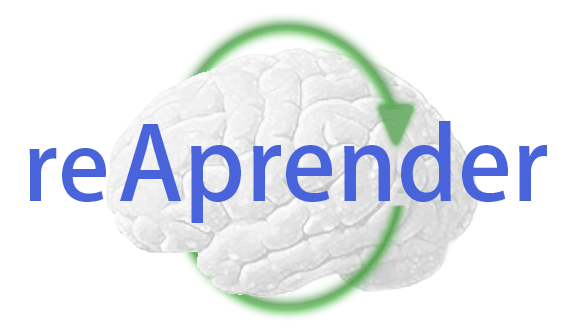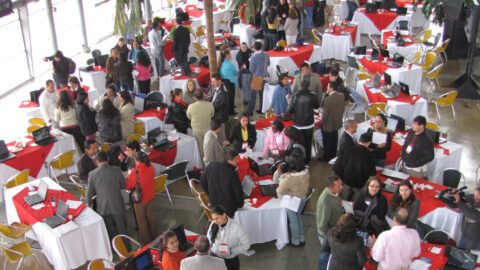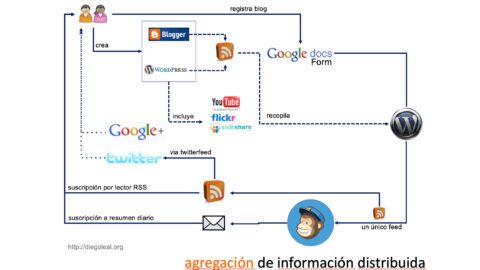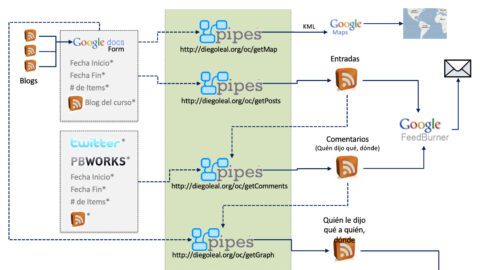This is the first post in a series of four, in which I will be reporting and commenting on the experience we had last year (December 2007) with a couple of EduCamps (that is, workshops on the use of social software tools) we offered, from the Ministry of Education, in Bogotá and Medellín. This task is long (I mean, really long) overdue, but I finally decided to undertake it. This first post includes information about the origins, motivations and decisions that guided the design of the workshop and a link to a page on my wiki, where you can find all the wiki">detailed design (in Spanish, so far).
The second and third posts will be devoted to show a little of what happened in Bogotá and Medellín, respectively. The last one will contain some lessons learned and a sort of "toolbox" and suggestions, if you want to embark on an adventure of this sort on your own.
It is worth saying that it may pass some time to get to complete the four posts. However, I promised Stephen a long time ago to write in English about this, so it's a commitment that I really want to honor.
With that said, let's get started!
The idea of the workshops came a Saturday afternoon in Bogota (August 2007), while talking to Nancy White, Jay Cross and Fernando, a day after we finished the International Seminar on E-Learning Quality we organized back then, in which we had them as guest speakers.
Nancy mentioned that, while taking notes during the event (Nancy is a person incredibly efficient to take notes!) and reporting online what was happening , Ulf (Ulf-Daniel Ehlers, another of the guest speakers) asked about some of the tools she was using. She explained to him, and then Ulf did the same with Virginie (another guest speaker), who was sitting next to him.
This little situation was quite appealing to Nancy so, later, we ended up discussing how to organize an experience meant to foster "over-the-shoulder" learning. The ideas discussed were meant to turn into something "concrete" that what we often do with our colleagues (and even perfect strangers), when we read the newspaper of someone sitting next to us, or when we ask for help to someone sitting in the next chair in our office. In fact, this is a very common practice among programmers, for example, who share tips and solutions while working on the same computer room...
We saw that, if we wanted such an experiment to be successful, we would need each participant to have his own computer and, taking into account the intense use that both Nancy and Jay make of online tools, we would need a good Internet connection.
Back then, through my feeds I had already heard about Pecha Kucha and some of the BarCamps and PodCamps made in the United States and Europe, and about the experimental traveling unconference made in New Zealand in early 2007. I discussed about it with Jay and Nancy, and I started to see the huge importance of designing an event in which, to reproduce what I heard from Nancy and Stephen repeatedly, we could model practices of collaboration between perfect strangers, in an environment that would allow them to discover that we all can be teachers and learners at the same time.
To keep this short, in the following months I got more info about some of the various alternatives available in the unconference world (including, let's say, the OpenSpace technology and the World Café), and I started to design the overall narrative for the event.
The design document, which served as a guide to the activities of the workshop, can be found in my wiki (in Spanish only). From a static document (as released in December 2007), my wish is that it becomes a support to organizers and facilitators of this type of activity, so that's why it is a wiki right now.
As in so many other things, I have to say that the confidence that Claudia Zea and Maria Victoria Angulo gave me to launch these workshops was priceless, as well as the support of my team at the Ministry of Education (Gloria James, Karen Caceres and Francisco Suarez). The support offered by CINTEL to put in place all the logistics is equally priceless. And last but not least, the decision of Stephen Downes to join us in this new adventure was invaluable. Now, I would not say it was unexpected, because Stephen is someone with a very open mind to undertake this kind of thing, but I think it was very fortunate, because the date of the workshops matched a small space in his agenda, which allowed him to join us in Bogotá and Medellín.
Now, one may wonder why Stephen Downes and not any other speaker. The workshop is built on a background related not only to collaborative learning, but relies on concepts such as connectivism, personal learning environments and, ultimately, has to do with the possibility that each learner should have of discovering his interests (and eventually explore them with the support of technology), beyond a curriculum or some pre-defined learning goals.
During my time at the Ministry and through the inmersion I had in the blogosphere, I discovered that Downes is one of those people who not only preaches about technology, nor talks about its potential, but he takes time not only to use it, but to share, create and experiment with it. But it was not only a matter of technology. Stephen is also at the center of discussions about connectivism, e-learning and personal learning environments. That, added to the previous visits he did to Colombia, and his knowledge about the things we wanted to do, made him the best person to deliver a lecture to give some context about what we wanted to do in the workshop.
Both Nancy and Stephen, as well as Fernando and some other people, were key in debugging the initial design ideas and building the workshop narrative. To all of them my gratitude for the time they devoted to this.
So, to make a long story short, I'd like to invite you to review the wiki (that is, if you can read Spanish… I'll have to do something about that), to express your comments (good or bad) about the design (if there are any readers here who made part of it), and to join me in the report of what happened in Bogotá and Medellín.






